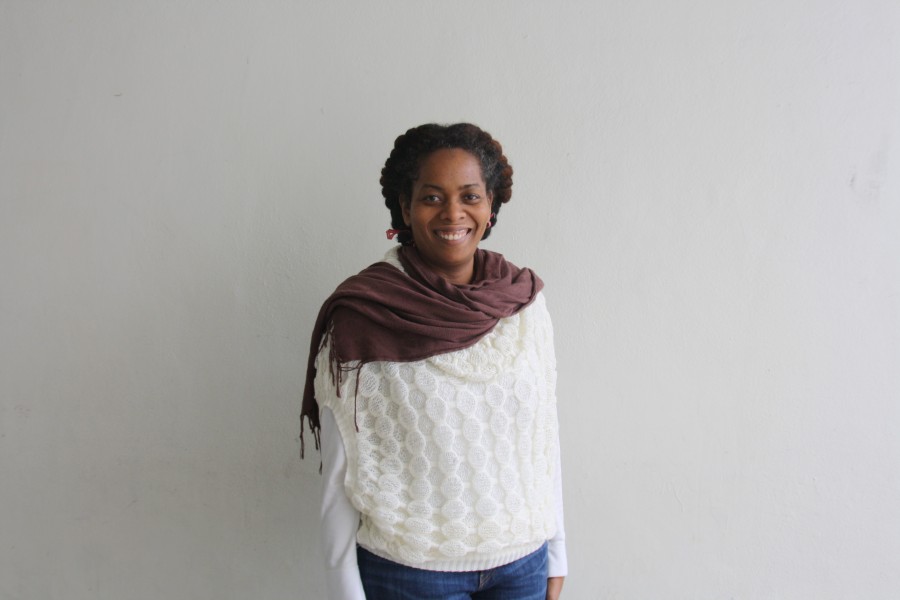A Synopsis of Separation and Segregation in the Modern Day Classroom
February 11, 2016
From the lower level English classes at Palmetto to the Advanced Placement (AP) courses, the percentages of differing social classes changes drastically. As curriculum level increases, so too does classism and racism. Tenth grade English teacher Ms. Keisha McIntyre-McCullough took note of the segregation and discrepancies within the walls of her classroom, and other classrooms at Palmetto. She took her observations and turned them into an article, Speaking Truth to Power, which encompasses the reality in the placement of students in English classes. Her article was published in the National Council of Teachers of English’s English Journal.
In her article, McIntyre-McCullough breaks the social silence of ignoring what she says is problematic across the board, the presence of racism and classism in the education system.
McIntyre-McCullough has worked at more than five schools in teaching career. During her experiences at multiple schools in South Florida, she noticed trends.
“How we level students by putting students in certain classrooms can be detrimental because it’s sometimes based on social class or based on color, and that can be problematic,” McIntyre-McCullough said.
She believes that students should be given equal chances to learn material, regardless of their level of curriculum.
“If we are putting only certain people in one class and certain people in the other, and teach each group certain things versus teaching another group the other, then you’re institutionalizing racism, classism, and not everybody gets an equal chance.”
In her classroom, she thinks some students have been trained for failure based off of previous setbacks they have experienced.
“When a student says ‘I’m not smart enough to learn this,’ that’s a problem. It means they’ve been trained that they’re not smart enough,” McIntyre-McCullough said. “No one told them ‘this is something you can do.’”
Based off of her personal experience, she has seen students of color get demoted to lower level classes rather than be given the chance to struggle in AP classes.
“In most cases, it is the teacher who dismisses the student from his or her classroom and unfortunately, these students are more than likely children of color,” McIntyre-McCullough wrote.
In addition to racial segregation in classrooms, there is also a gap in the classroom based on the student’s economic status. According to McIntyre-McCullough’s article, students in poverty and lower income families have demonstrated low achievement in schooling. In Jeffrey Max and Steven Glazerman’s Institute of Science Study, they found that children of poverty had teachers without effective training qualifications.
“Children of poverty or children whose faces are not part of the dominant culture’s endure a marginalized existence in today’s school system.” she wrote in her article.
McIntyre-McCullough believes the solution to a segregated and economically tense classroom setting lies in the hands of not only the teachers, but parents of the students, too.
“[the solution] can be mitigated through the teacher,” McIntyre-McCullough said. “If a teacher says that ‘Hey I have these students and I can be compassionate and then share all of my knowledge with them’ and not be close closeted and say ‘I have a bunch of blank students and I’m only going to teach them blank’ you can avoid social injustice.”
In her article, she discusses the importance of highly trained teachers who can discuss social injustice and racial issues openly with students.
“We need parents to be trained to know the importance of learning and school,” McIntyre-McCullough said. “It’s not something that will change over night.”
McIntyre-McCullough is a woman of color who came from a foreign country to the U.S.
“I see how in other counties, if you don’t pass a test, you are automatically in a vocational community,” she said. “You have no hope to be anything more than a blue collar worker.”
McIntyre-McCullough believes that if America tries to pick up this system, it will contradict America’s democratic values..
Before McIntyre-McCullough came to America, her parents had the image of a nation where there was equality present across the board.
In the school system, it is apparent equality favors specific people.
“In a nation of freedom, only certain people get that freedom,” she said. “On the surface there’s equality, but not really.”

